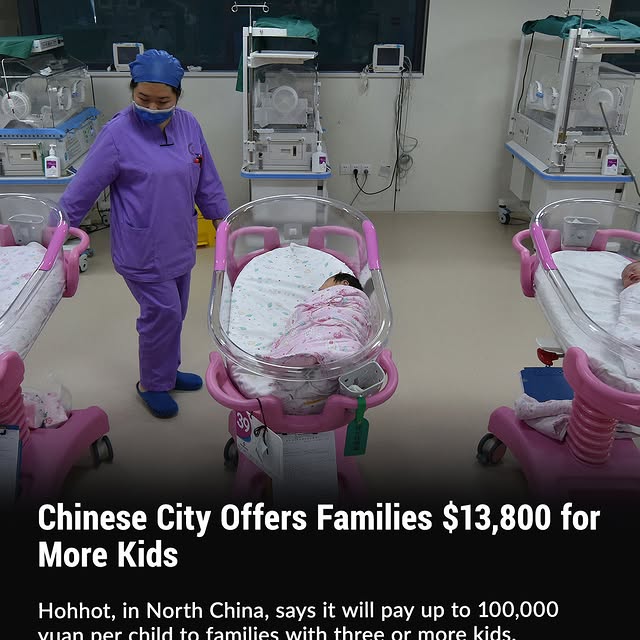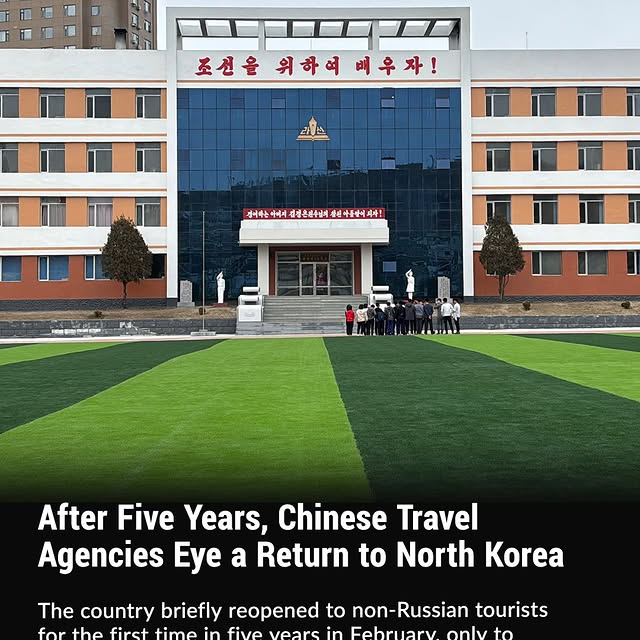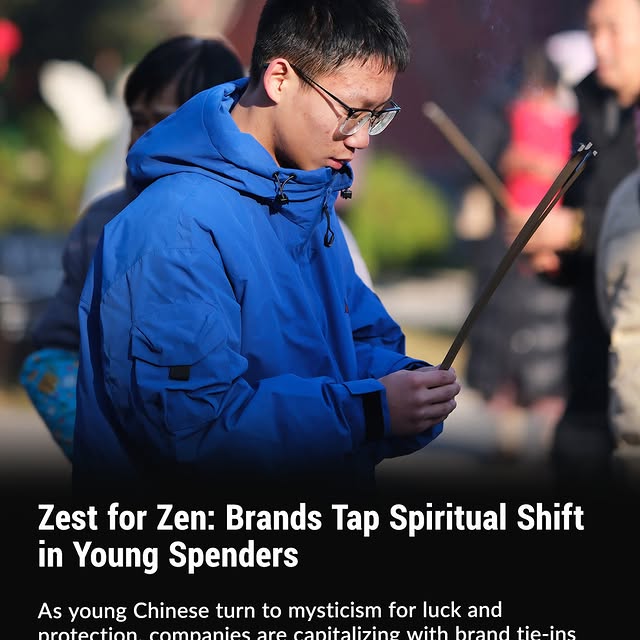
Sixth Tone
Fresh voices from today’s China
Recent Posts

A cyberbullying case involving the 13-year-old daughter of a top Baidu executive has sparked outrage in China and raised privacy concerns. Last week, the teenage daughter of Xie Guangjun, vice president of Baidu’s cloud division, was accused by multiple social media users of involvement in doxxing incidents resulting in the disclosure of users’ personal information, including their real names, state-issued ID numbers, phone numbers, and IP addresses. Her father, Xie, published a public apology Monday, saying he “regretted not teaching his daughter to respect and protect other people’s privacy,” adding, “I am deeply remorseful and apologize to all those affected.” In the most recent case, which took place last week, Xie’s daughter was accused of taking part in a coordinated online attack against a pregnant woman, helping reveal the woman’s personal information and send hostile messages to her husband. The woman had become a target of harassment after expressing her disapproval of the demanding work schedule of a popular K-pop singer, a comment that may have caused the singer’s “fan circle” to retaliate. Fan circles — highly organized and hierarchical fan groups dedicated to particular celebrities — have been linked to numerous high-profile doxxing and cyberbullying cases in recent years. Read more through the link in our bio. #Baidu #Socialmedia #China

The capital of China’s Inner Mongolia Autonomous Region has unveiled one of the country’s most generous child rearing subsidies to date, offering up to 100,000 yuan ($13,800) per newborn and other preferential policies to families with three or more kids. Hohhot, a regional hub of over 3 million in North China, announced the subsidy as part of a new plan to create a “development-oriented, friendly, and vibrant city.” The subsidy represents a 2,000% increase over Hohhot’s previous three-child allowance, a one-time 5,000-yuan payment introduced in 2023. Like many Chinese cities, Hohhot has experienced a steady decline in births in recent years, according to government statistics. According to the most recent publicly available data, the city recorded 20,000 newborns in 2023, down from 28,000 in 2019. Under the new policy, families with at least one parent holding a Hohhot hukou household registration will receive 100,000 yuan if they give birth to a third child after March 1. The subsidy will be paid out at a rate of 10,000 yuan per year until the child turns 10. In addition to the subsidy, third children will enjoy preferential policy treatment, including the ability to attend any school in the city. For families with multiple births from a single pregnancy, each child born after the second will receive the same benefits. Hohhot also plans to hand out cash to first- and second-time parents, awarding them subsidies of 10,000 yuan and 50,000 yuan, respectively, after March 1. Read more through the link in our bio. #family #China #kids #population #policy #child

Peter Hessler on Writing's Future: Fewer Writers, Not Fewer Readers #writing #read #book #China #peterhessler

Golden Oldies: Aging Fans Fuel Pop Singer’s Comeback After a decade away from the spotlight, musician Dao Lang has struck a chord with middle-aged and elderly fans for his grassroots style. Read more through the link in our bio. #subculture #aging #DaoLang #pop #singer #musician #music #China

China announced a “special action plan” on Sunday, aimed at stimulating consumer spending by increasing resident incomes and expanding the social safety net. The long-awaited initiative, which comes as policymakers navigate an increasingly uncertain global economic landscape, includes 30 measures covering everything from income growth, paid leave, and international tourism to childcare subsidies and coupons for big-ticket purchases. Unveiled days after the conclusion of China’s annual “Two Sessions” legislative meetings, the consumption plan is part of an effort to achieve the country’s gross domestic product growth target of around 5% — unchanged from the previous two years. According to the National Bureau of Statistics, total retail sales of consumer goods grew by 3.5% in 2024, down from 7.2% in 2023. Local governments across China have previously announced multiple rounds of consumption support policies, including coupons for big-ticket items or rebates for upgrading household appliances. The new policy calls for a more broad-based approach, attempting to address longstanding “pain points” such as out-of-control overtime, high childcare costs, and the real estate slump, though implementation will largely be left to local governments. Read more through the link in our bio. #economy #consumption #China

Otto Weng’s first encounter with the Democratic People’s Republic of Korea came through a telescope on the banks of the Yalu River. Gray hills. Empty roads. A place just out of reach. Last week, he became one of the first non-Russian tourists to cross the border in five years — and found a country eager to put its best foot forward. Students at a lavishly decorated school performed a skit titled “We Are Happy”; factories bustled with activity; and children danced in space-aged costumes. For Weng, a 24-year-old lifestyle vlogger with 500,000 followers on video platform Bilibili, the four-day trip was an exciting, if occasionally nerve-wracking, success. He returned with 700 gigabytes of footage from one of the world’s most isolated nations. But for the handful of agencies that specialize in tourism to North Korea, the picture was cloudier. On March 5, just 14 days after reopening and three days into Weng’s trip, North Korea once again suspended entry for tourists. No official reason was given for the halt, and it is unclear when tours will be able to resume. While some operators are still accepting bookings ahead of major international events like the Pyongyang Marathon April 6, for now, insiders say, the only thing to do is wait and watch. #northkorea #travel #China #tourism

Several years on, China’s traditional health craze is showing no sign of slowing down. While jujube ice cream and herbal bubble teas have each had their 15 minutes of fame, now a bar in the southwestern Chinese city of Chengdu thinks it’s found the next viral fad: traditional Chinese medicine cocktails. Priced around 100 yuan ($13.80) per glass, the drinks on offer at the newly opened Soul Asylum claim a wide range of effects, from weight loss to enhancing male vitality and nourishing a person’s blood. Soul Asylum’s owner, identified in domestic media reports only by his surname, Liu, says he consulted a local TCM doctor for the recipes and sourced the required materials from a TCM specialty medicine store, soaking them in grain alcohol for over three months. “I talked to TCM doctors, and they said mixing medicinal wine with other alcohol is not a problem,” Liu told the Chengdu-based news outlet Cover News. Among the bar’s most popular cocktails is a drink promising to “boost energy and improve blood health,” featuring ingredients like ginseng, Sichuan lovage root, rum, red dates, and egg yolk. Another top seller aims to “enhance male vitality” through deer antler and whiskey. Reviews for the bar, which opened late last year, have been mostly positive, with users on the Yelp-like platform Dazhong Dianping giving Soul Asylum an average score of 4.4 out of 5. According to Liu, the bar’s clientele tends to be young and prefers lower-alcohol options. Liu isn’t the first bar owner to capitalize on a growing interest in healthy lifestyles, or yangsheng, among young Chinese. TCM-themed establishments have popped up nationwide in recent years. Some, like Liu’s, offer TCM cocktails like “Boss’ Chicken Soup” — featuring angelica root, ginseng, Aperol, and gin. Others, like a bar in the eastern city of Jinan, nod to TCM with herbal ingredients and traditionally inspired names, but don’t claim any medicinal properties. Read more through the link in our bio. #TCM #drink #trend #cocktail #health #tradition #China

Despite her family’s deep-rooted tradition of visiting temples and fortune tellers, Chen Jinyue was largely indifferent to spiritual practices until she entered the workforce. Now, she’s obsessed. “I never used to care, but so much in life now feels out of my control,” said Chen, a 25-year-old product manager in Shanghai. In recent years, she’s developed an insatiable appetite for mysticism, from tarot cards to feng shui — even flying to Hong Kong and Japan to have her fortune read at temples. She also spends thousands of yuan each year on products and services that promise to bring prosperity, protection, and positive energy. She is far from alone. Many young Chinese shoppers have been captivated by a fusion of traditional spirituality and modern consumer culture, creating the so-called “mysticism economy.” The growing fascination with astrology, divination, superstition, and other beliefs appears evident both online and offline. Posts related to metaphysics have drawn billions of views on the social media platform Xiaohongshu, or RedNote, while the Chinese astrology app Cece reported 2.49 million active users in October, an increase of more than 57% year on year. Meanwhile, Buddhist temples and Taoist schools have witnessed renewed interest and increased footfall. This cultural shift has created an ideal landscape for “metaphysical marketing,” a strategy embraced by brands to enhance visibility and drive sales by weaving spiritual elements into their products and services. Businesses from a range of sectors including fashion, food, and wellness are transforming abstract emotional needs into tangible goods. During this year’s Chinese New Year holiday, crystal bracelets — said to enhance energy and alter magnetic fields — were one of the most sought-after products across e-commerce platforms and livestreaming channels. According to market analysis by Chanmama, as many as 1 million units were sold in January, with annual sales in 2024 exceeding 100 million yuan ($14 million). Read more through the link in our bio. #generation #business #spiritual #China #Zen

Star Actor’s English Course Gets Mixed Reviews The martial artist and actor Daniel Wu launched a spoken English course. Some fans aren’t buying it. Related read through the link in our bio. #English #China #WuYanzu #star #actor

All you need is love. But failing that, sometimes a shared interest is more than enough. A “bridge partner,” or 搭子(dā zi), is someone with whom you engage in a particular activity, rather than a close friend or romantic partner. #relationship #buzzword #partner #situationship #friend #companion #China #Chinese

A day after an international research team predicted China could be home to as many as 630 million overweight and obese people by 2050, the country’s National Health Commission announced a major new initiative aimed at tipping the scales back toward healthier lifestyles. Announced by NHC director Lei Haichao during China’s annual “Two Sessions” legislative meetings, the initiative will create multidisciplinary “weight management clinics” at hospitals across China, tasked with helping patients cut unwanted pounds safely. The clinics “will provide a professional consultation environment and platform for residents struggling with weight issues, helping them better manage their weight and lead healthier lives,” Lei said. Obesity has skyrocketed in China over the past 40 years, as people eat more and exercise less. The proportion of overweight men almost doubled in a single generation. By 2021, China was home to more than 400 million adults classified as overweight or obese, more than double the total of India or the United States, according to a study published Saturday in the prestigious journal The Lancet. That number is projected to rise to 630 million by 2050. Numerous studies have linked higher weights with increased risk of chronic diseases such as hypertension, diabetes, cardiovascular issues, fatty liver, cancer, and even cognitive decline. “The primary risk factors and diseases threatening the health of the Chinese population today still stem from chronic non-communicable diseases,” Lei said in his speech announcing the initiative. Internationally, obesity is commonly determined using the body mass index (BMI), which is calculated as a person’s weight divided by the square of their height. Read more through the link in our bio. #weightloss #health #weight #China #BMI #body

An array of Doraemon sculptures take over a Shanghai street ahead of the “100% Doraemon & Friends” exhibition, March 8, 2025. (Photos: Shanghai Jing’an Meida Center) #Doraemon #Shanghai #Jingan
Similar Influencers

Shreya Agarwal

Business Mavericks

BEAUFORT

Jason Koh

Dialogue Brand Agency

PriyoShop

Singapore 🇸🇬 Travel | Hotels | Food | Tips

Voyar

Noble Affairs

Catalyst Outsourcing

Nitin Kashyap

Assistive Technologies

DMC GADGETS

ANA Media | Digital Marketing Sydney

MODERN INTEGRATION | 🇴🇲 عقارات عُمان

anymo

KirtiKunj Jewels LLP

NIV C&C

Kreative Web Builders

DigiiQuik

PnC.Playful

Outdoor Toys


Trish Eigenbrode

Alexis Lhoyer

Laureen Goh

Missy beauty

Instaroid

Desmond Tan
